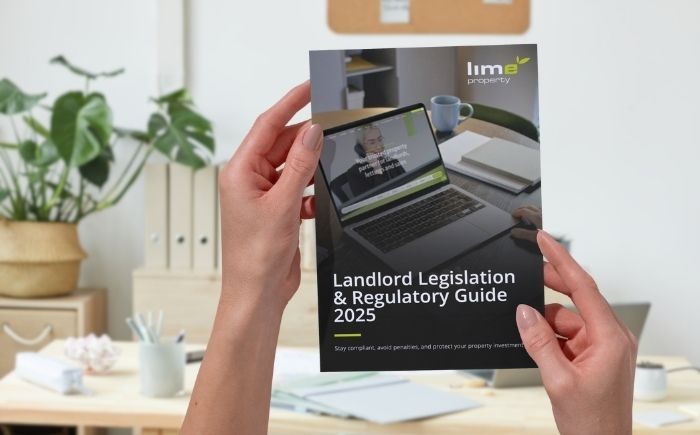.png)
The regulatory landscape for landlords in Hull continues to evolve significantly in 2025. As property standards and tenant rights receive greater focus from legislators, staying ahead of these changes is crucial for maintaining compliant and profitable rental operations. At Lime Property, we understand these challenges and have compiled this essential guide to help Hull landlords navigate the latest regulatory developments with confidence.
1. The Renters’ Rights Bill: Understanding the New Framework
The implementation of the Renters’ Rights Bill marks one of the most significant shifts in the UK rental market in decades, with several key impacts for Hull landlords:
-
Transition to Assured Periodic Tenancies: Fixed-term agreements are being replaced with open-ended tenancies, giving tenants greater flexibility while changing how landlords approach property management and investment planning.
-
Revised Notice Periods: Landlords must now provide more substantial notice periods before requesting tenants to vacate, requiring better forward planning for property sales or major renovations.
-
Enhanced Tenant Protections: The bill strengthens tenant rights regarding property conditions, with clearer pathways for dispute resolution and compensation for substandard accommodation.
-
Digital Record-Keeping Requirements: Maintaining comprehensive digital records of all tenant communications and property inspections is now essential for demonstrating compliance.
"The Renters’ Rights Bill represents a fundamental shift in the rental market balance. Landlords who adapt their processes early will find themselves at a significant advantage."
— Lime Property Management Team
2. EPC Regulations: Your 2030 Compliance Roadmap
With the 2030 deadline for minimum EPC C ratings approaching, forward-thinking landlords are already implementing strategic improvements:
-
Comprehensive Energy Assessments: Professional evaluations can identify the most cost-effective routes to compliance, potentially saving thousands in unnecessary upgrades.
-
Phased Improvement Plans: Breaking down required improvements into manageable annual investments can prevent last-minute compliance costs while gradually increasing property values.
-
Available Funding Options: Several regional and national schemes offer financial support for energy efficiency improvements, including the Hull Green Homes Grant and the Boiler Upgrade Scheme.
-
Strategic Timing of Improvements: Coordinating energy upgrades with routine maintenance and void periods minimises disruption to rental income.
3. Awaab’s Law: Proactive Property Maintenance
Following the implementation of Awaab’s Law, landlords face stricter requirements regarding property conditions:
Mandatory Response Timeframes:
-
Emergency hazards: 24 hours
-
Serious disrepair: 3 working days
-
Non-urgent repairs: 10 working days
Damp and Mould Prevention Strategy: Developing and documenting a comprehensive approach to moisture management is now a compliance requirement.
Inspection Protocols: Regular, documented inspections with standardised assessment criteria protect both landlord and tenant interests.
Tenant Education: Providing clear guidance on ventilation, heating, and early reporting of issues can significantly reduce maintenance costs while demonstrating a commitment to property standards.
4. The Hull Accredited Landlord Scheme: Competitive Advantage
The Hull Accredited Landlord Scheme offers substantial benefits for participating property owners:
-
Market Differentiation: Accreditation provides a recognised quality standard that attracts higher-quality tenants and justifies premium rents.
-
Regulatory Guidance: Members receive early notifications about upcoming regulatory changes and personalised compliance advice.
-
Dispute Resolution Support: Access to mediation services can prevent costly legal proceedings and protect landlord-tenant relationships.
-
Networking Opportunities: Regular meetups connect landlords with industry experts and create valuable peer support networks.
5. Adapting to Hull’s Evolving Market Dynamics
Understanding the unique characteristics of Hull’s rental market is essential for maximising returns:
-
Neighbourhood Trends: Significant rental growth is being seen in the Newland Avenue area and around the university, while the city centre market is showing increased demand for premium apartments.
-
Tenant Demographics: Hull’s growing student population and increasing number of young professionals are creating demand for different property types than in previous years.
-
Investment Opportunities: Areas benefiting from Hull’s ongoing regeneration projects are showing above-average capital appreciation, making them attractive for portfolio expansion.
-
Professional Management Solutions: As regulations become more complex, professional property management services offer cost-effective compliance solutions while maximising rental yields.
Conclusion: Staying Ahead in a Changing Landscape
The regulatory changes of 2025 represent both challenges and opportunities for Hull landlords. Those who adapt proactively will not only ensure compliance but can leverage these changes to strengthen their market position and enhance property returns.
At Lime Property, we are committed to supporting Hull landlords through this evolving landscape with tailored advice, comprehensive management solutions, and local market expertise. Contact our team today at [email protected] or call 01482 216060 to discuss how we can help you navigate these regulatory changes successfully.




